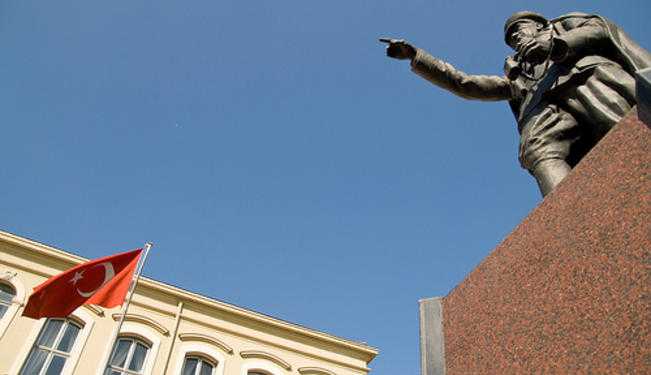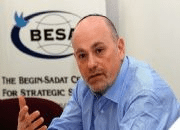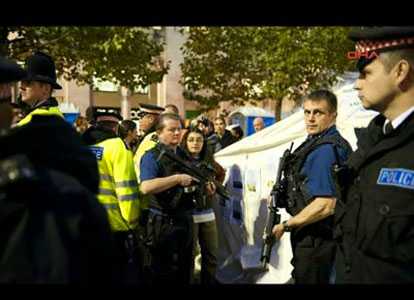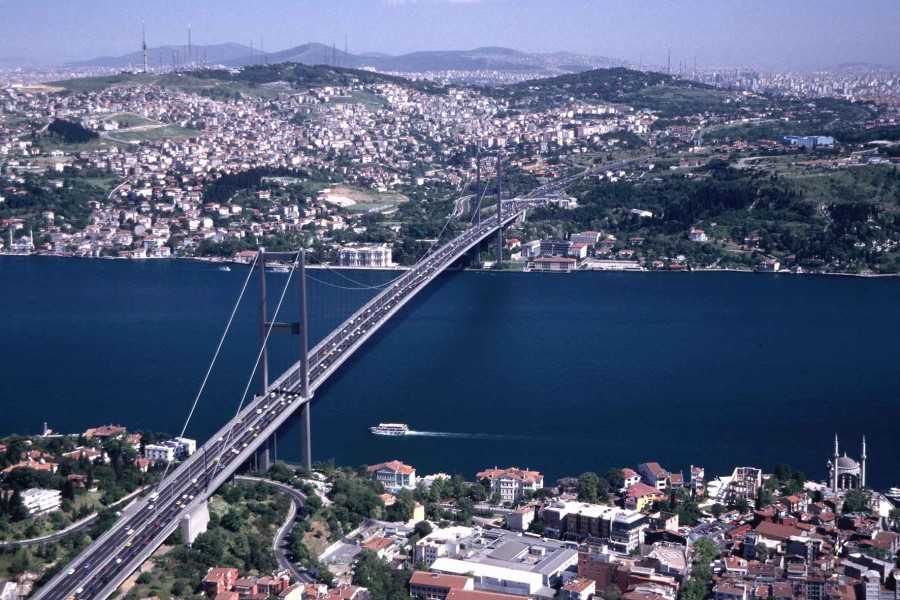Ari Katz
Turkey is a predominantly Sunni Muslim, ethnically Turkish country with a Kurdish minority. Its role in several ongoing geopolitical sagas, its increasingly public Islamic conservatism, and its newly assertive nature has positioned Turkey squarely on the international stage.

Historical Background
After a brutal war for independence from Western WWI victors, Mustafa Kemal Ataturk led a group of military officers who successfully instituted secular and western reforms, including the restriction of Islam in the public sphere. Heralded as exemplary, “Kemalism” drove Turkey’s destiny to become a successful, liberal and modern power.
Following World War II, Turkey moved forward as a largely secular, constitutional parliamentary republic that became increasingly allied and integrated with the Western geopolitical framework.
Coups and the subsequent splintered political landscape led to the ascendancy of the socially conservative, fiscally liberal Justice and Development Party (AKP) led by the current Prime Minister Recep Tayyip Erdogan. The AKP, elected in 2002, has presided over fiscal growth, a push to join the European Union (EU), and an institutional social conservatism.
Domestic Politics
Turkey has leaned more conservative in recent years, but maintains a relatively stable political atmosphere with healthy civic participation. The success of the reigning AKP, with Erdogan at the helm, has sparked fears of a developing Islamist shift. Although this conservatism appeals to elements of the Turkish population, for others, it runs counter to ostensibly important secular norms and curbs on Islam in the public sphere. Whether this Islamist characterization is true, Erdogan rejects the label to avoid the associated stigma from both external and internal actors.
Aside from the AKP, two other major political parties are acting in Turkey: the center-left leaning Republican People’s Party and the right-wing Nationalist Movement Party. The former espouses a populist, secular ideology in the tradition of Ataturk, while the latter has a nationalist Pan-Turkic agenda.
A third organization, the Kurdistan Worker’s Party (PKK), is a militant, leftist revolutionary organization that claims to represent the interests of the ethnic Kurdish population in Turkey. The PKK is banned in Turkey and has been designated as a terrorist group, but it continues a sporadic armed insurrection against the Turkish government in its quest for increased Kurdish minority rights and the eventual establishment of a separate Kurdish state.
Foreign Politics and Geopolitical Significance
Turkey has become an increasingly strong, assertive regional power that has shown some foreign policy independence from the US strategic framework, while still remaining a key American/NATO ally in the Region. In this respect, Turkish military power is burgeoning on the heels of an evolving modernization program, and its participation in the US F-35 Stealth Fighter Program could dramatically alter power dynamics with its neighbors.
Turkey is also experiencing a recent surge in soft-power. Its recent rebukes and strained dealings with Israel over the Palestinian issue have earned it admiration across the Middle East and North Africa region (MENA). Synergizing with this, Turkey also propagates a populist image by claiming support for popular uprisings in the Arab world. The flagship aspect of this policy has been the public criticism of Syrian President Bashar al Assad and limited logistical support of the Syrian rebels in the current uprising.
With regards to Tehran, historically closer ties have given way to recent tension both over Ankara’s negative disposition towards Iran’s ally in Damascus, and its participation in the NATO antiballistic missile system. This cooperation with the NATO program is a manifestation of Turkey’s increasing desire – seen also in its bid to join the EU – for increased integration with the West, especially Europe. Far from assured, however, this quest for EU membership is challenged by European fears of an ostensible Turkish Islamic resurgence under Erdogan along with an indecisiveness stemming from recent internal EU political and economic upheaval.
A burgeoning power at the crossroads of the West and Asia and the nexus of many critical international issues, Turkey will continue to play a key role in regional and global politics. It is a critical broker among internal MENA actors and ultimately between the West and the East.
via Turkey: Modern Assertiveness in a Globalized World | Fair Observer°.
 French police have arrested seven members of the terrorist Kurdistan Workers’ Party (PKK) in Reims in the latest crackdown on the terrorist organization.
French police have arrested seven members of the terrorist Kurdistan Workers’ Party (PKK) in Reims in the latest crackdown on the terrorist organization.




